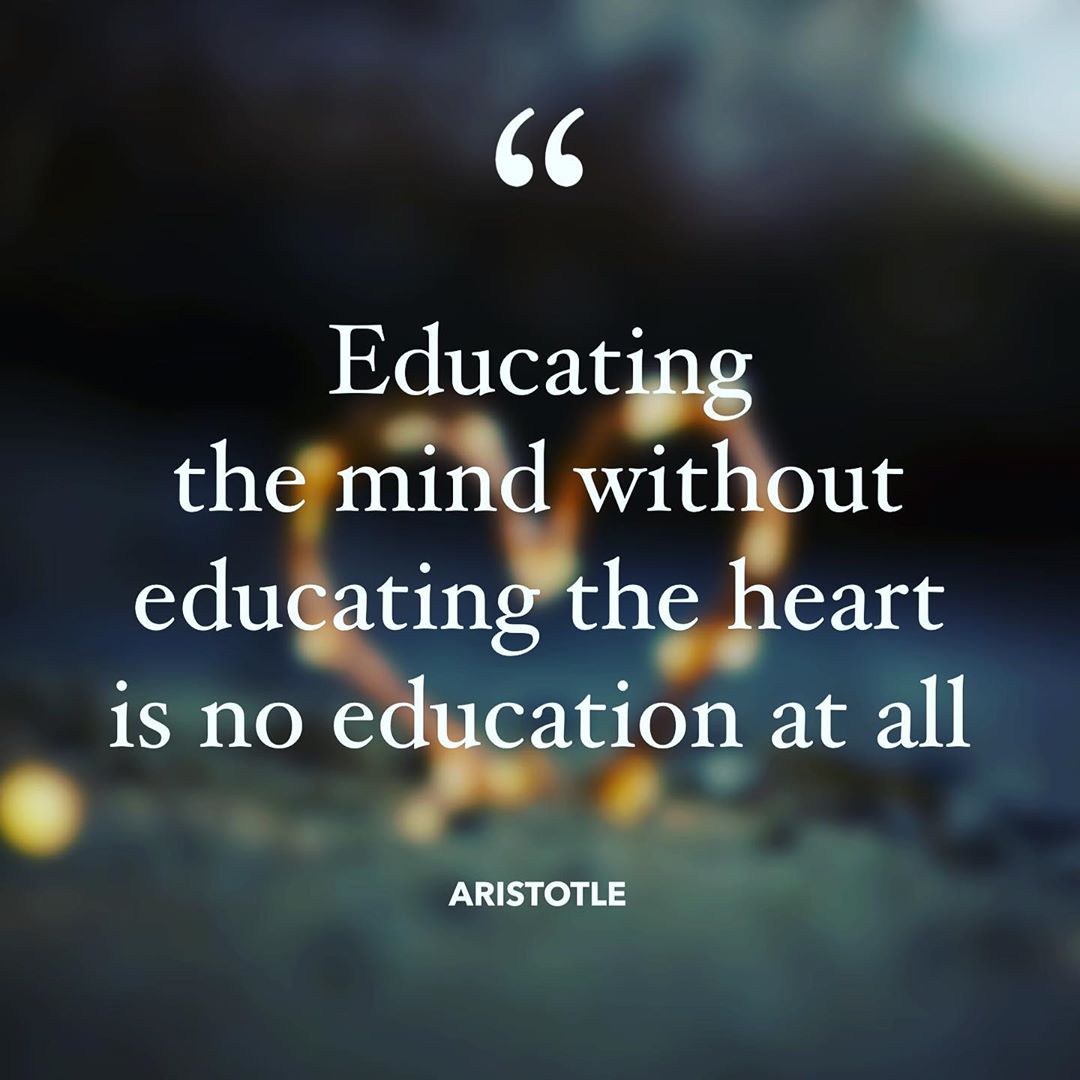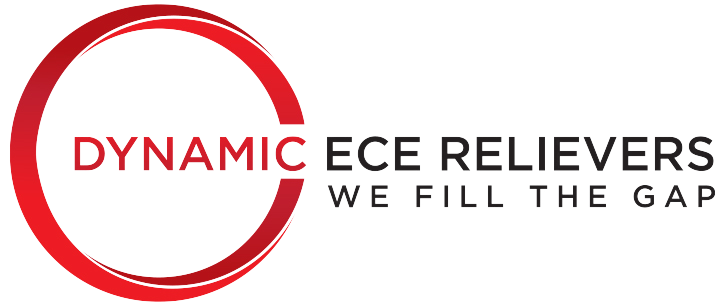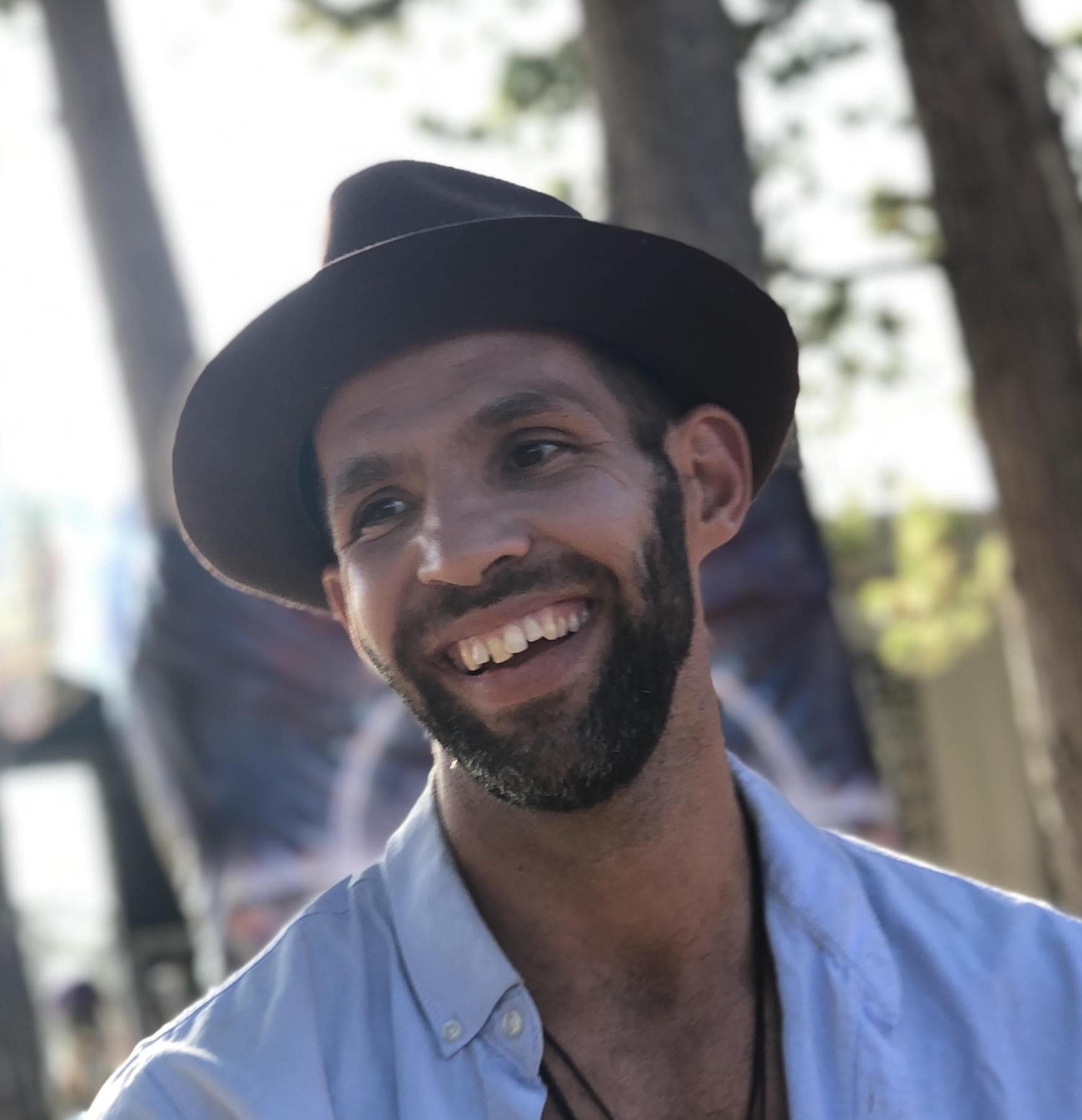The Conscious Collective have a vision - empowered children, nurtured communities, and a peaceful world. Bringing together a network of passionate people from all walks of life, Rick Fourie is making a big splash in the world of Early Childhood Education with his heart-centred approach to teaching; offering inspiring professional development opportunities alongside innovative early learning villages.
As well as creating weekly podcasts (check them out), Rick and Conscious Collective have made some exciting national ‘firsts’ over the past eight weeks, running ‘Play to Heal the World’ - a virtual festival for Early Childhood Educators - a roaring success with an incredible turnout of teachers who share the vision and passion for the well-being of our tamariki. We had the opportunity to speak with Rick and delve a little deeper into the details of what Conscious Collective is all about.
Thanks so much for sharing with us today Rick! Can you tell us a bit about your journey in NZ ECE so far?
My journey into ECE started in 2009 when we set up Creators Education Trust. I wasn’t really close to the sector, in actual fact I was a qualified Biochemical Engineer working as a youth pastor at a local church (go figure!). However when I was working with teenagers, it dawned on me that the educational system has failed so many of them, and it required a major rethink. I saw the need for an educational system with love and relationships at its core, focusing on children’s unique giftings rather than having predetermined outcomes. So we gathered a team and set out on a journey to bring this idea to life.
“We exist to inspire a more loving, peaceful world.”
Creators eventually grew to become a nation-wide operation including a few early childcare centres and a diverse home-based network working alongside many Oranga Tamariki caregivers. Since then I spent a short time setting up several House of Wonder early learning villages and then launched Conscious Collective last September. We exist to inspire a more loving, peaceful world. It’s been a wild ride, and one I could never have predicted.
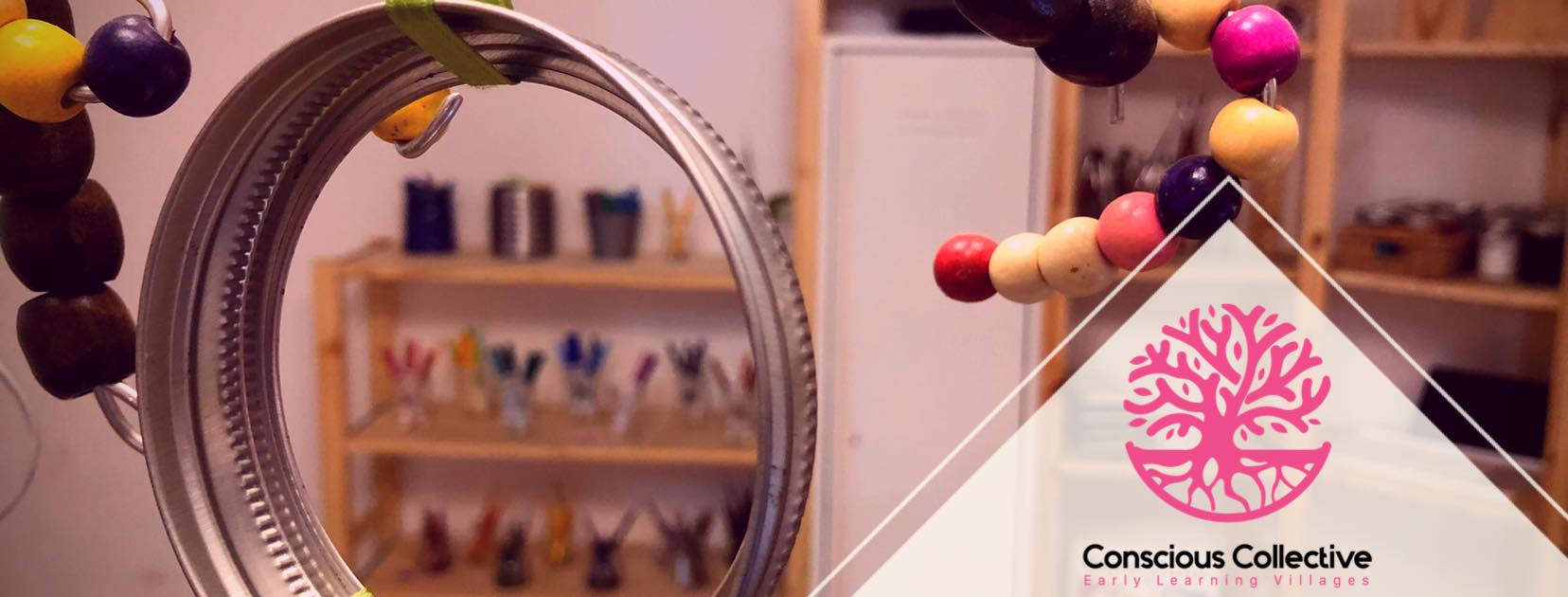
We’ve seen you making waves in the ECE space and you’re coming in with a really fresh approach - where does your inspiration come from?
We have a strong belief that you teach who you are; I think when you are being completely authentic to who you are, you will be the best teacher, or doctor or even plumber for that matter. So my inspiration really is just drawn from the extension of who I am, the collection of thoughts and ideas that has shaped me along the way, and the dreams and desires I hold for my own children and their future.
“I also believe that when we truly tune into children, they are our healers. They reveal to us the state of presence and wonder which we have so easily forgotten as adults.”
Yet the little glimpses we do get of this state of child-like wonder, where we are seeing the world as if we are seeing it for the first time, or moving our body in a new way, or connecting the dots to make sense of this world, can be tremendously healing and fill us with gratitude. On the other-hand, as many parents will tell you, children will also bring to awareness all the ‘unhealed’ emotions we still have. They are masters at pushing those buttons! If we get curious about these triggers, it will reveal our healing journey.
Carl Jung made this observation that our unconscious mind tends to move us towards wholeness and balance. This innate drive in us to heal and become whole is the greatest gift we can give our children. It allows us to connect more authentically to their wairua and allows their individual unfolding to happen without passing on our own trauma. So as teachers, just like it is with mothers and fathers, the more authentically we connect with our own wholeness, the more space we will allow innovation, creativity, critical thinking and emotional intelligence to flourish in the lives of our children.
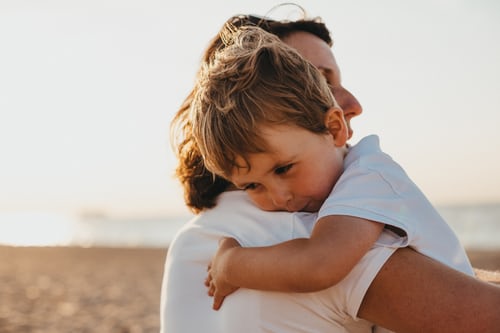
“I believe that when we truly tune into children, they are our healers. They reveal to us the state of presence and wonder which we have so easily forgotten as adults.”
What shape would you like to see the ECE sector of Aotearoa take?
To be honest, it needs a radical re-think. It seems that our culture tends to see children as something to manage and work around, rather than valuing their rights to an empowered life. If we were truly designing early childhood policies with the child as the primary consideration, somehow I don’t think the majority of the funding would go to Monday-Friday 7.30am-6pm institutional childcare. This is not a criticism of these centres (we provide these ourselves), it’s more a commentary on the broken lens of the culture we find ourselves in.
But given these cultural norms, and focusing on what we can do, rather on what is outside our control at the moment, I would say we need to seriously reconsider large age-bracketed group sizes. Having 15 to 20 toddlers in the same room and expecting them to developmentally grow and mature according to their innate biology is like putting all pieces of a car in a garage and expecting a car to miraculously emerge.
In his book Hold on to your kids, Gabor Mate makes the point that it’s only been very recently that we have moved from inter-generational ‘wombs’ of development where the child was surrounded by many different age groups during the unfolding of childhood, to a culture where the child is predominantly surrounded by peers of their own age and maturity. This change can’t be underestimated. It is a significant change for a species which gets programmed so effectively by their environment during childhood.
So practically what we are looking at doing with the centres Conscious Collective will be developing is to minimise group sizes, and create mixed age home-pods. This will eliminate transitions, allow parents to connect deeply to community and foster tuakana-teina relationships more effectively among other benefits.
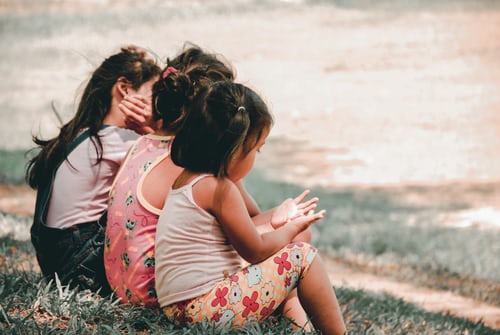
We know you focus your teaching around a heart centred approach - can you break that down for us?
Aristotle said, “Educating the mind without educating the heart is no education at all.” For millennia, philosophers and mystics have known that the heart is the seat of wisdom and love in our bodies, but with the post-enlightened era of objective reality (it is only true if you can measure it), the intelligence of the heart has taken a back seat in mainstream thinking. It is only recently, with our measurement instruments finally able to catch up, that we have realised that there is a lot more to our heart than merely just a mechanical pump. It has its own neurons, stores memory independently to the brain and sends intrinsic messages to the body and brain. Recent studies by the Heartmath institute have shown that emotions like ‘gratitude’ and ‘appreciation’ are a language that originates from the heart and impacts your entire body’s immune system, and higher order thinking.
So a ‘heart-centred’ approach to teaching speaks about tapping into our own innate wisdom and connecting with children on a level that is beyond just the intellect. We experience that type of connection as love, or a sense of belonging and acceptance, and modern science has realised that it is the stuff that makes our brains grow. It’s pretty simple really. When children are loved, and surrounded by natural environments, they are in resonance with the way nature has designed us to flourish and grow.
“When children are loved, and surrounded by natural environments, they are in resonance with the way nature has designed us to flourish and grow.”
We understand there’s a lot of proven science behind transformational leadership. Can you explain a little bit about that for us?
Researchers at the ESADE Business School in Barcelona wanted to understand whether they can identify emergent transformational leaders by just measuring the groups heart rate variability and EEG (brainwave) activity. What they found was that the ones who were able to regulate their heart rate in sync with their brain waves the fastest were the ones who were identified by their peers as the ones who had an outsized positive impact on the group. So they were able to regulate their own emotions most effectively and enter into a creative, calm and positive state before their peers. What’s even more interesting is that the rest of the group then proceeded to sync up with the leader’s biological rhythms. So not only was the leader able to regulate his own emotions, but he created a space which allowed others to regulate their emotions as well.
This is why a 2017 Harvard Business Review study showed that self-awareness was the major difference between highly effective leaders and those who are unable to progress their career. Another study showed that 5 weeks of 10 minutes-a-day mindfulness can increase self-awareness by 35%. So you put all this together and you start to understand an intriguing picture behind what it takes to be a transformational leader.
In this current climate we have a lot of unknowns moving forward. What would your number one piece of advice for leaders in ECE be, for the next few months?
“Invest into your emotional and spiritual well-being. Trust your heart and follow your instincts. Your own calm will be your team’s calm.”
As teachers and leaders we struggle with ‘unknowns’ and ‘mystery’ - but there is a tapestry to life which leads us towards the places we didn’t even know we needed to go. We have to trust that life is happening for us, and we are being guided by its light.
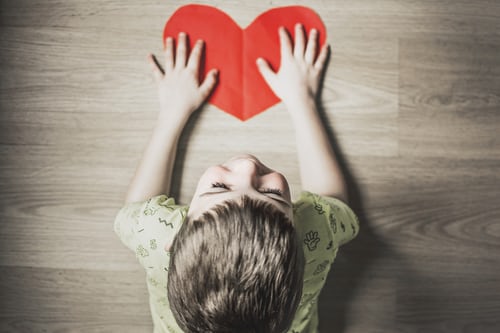
How can leaders and managers embed a culture of healing and well-being within their communities, especially for their teachers?
It always starts with the top. Unless we are interested in healing ourselves, we will never be able to foster a culture of healing among our staff. And healing is messy and often very uncomfortable. I think this is why we struggle to create these cultures at work. We like to keep things tidy and professional. But the best cultures in the world describe their team as ‘family’ - and we all understand that families can be messy. But healthy families allow us to turn up, warts and all, and come alongside each other in the healing journey. As Ram Dass says ‘We are all just walking each other home.’
Tell us a little bit about the Conscious Collective and your momentum behind founding this community?
The outward facing part of Conscious Collective has only really come alive during the Covid-19 lockdown. We realised that this was a time where teachers need support, and for the first time ever actually had ample time to do some professional development together. So we just connected with friends we admired in the sector and did a series of Facebook Lives with them. This led to running New Zealand’s first virtual festival for Early Childhood Teachers called Play to Heal the World. It incidentally also became the largest gathering of ECE teachers in Aotearoa as well (albeit virtual). This tells me that our teachers are resonating with the message. They are connected to their hearts and want the best for our tamariki. It was a fabulous time.
If someone would like to be involved, where should they go?
Most of our activity happens on our Conscious Collective Education Facebook page, and we have just launched our podcast. We do these live broadcasts once a week (Wednesday 7.30pm) which then also get made available through our podcast and You Tube channels.
We’re giving you a magic ECE wand that’ll change one thing in Aotearoa centres - what do you do with it?
Implement Dr Mike Bedfords Quality-Based Contracting framework for the way our sector is run.
We’re excited to watch Conscious Collective grow and develop in New Zealand’s ECE sector. Be sure to keep your ears perked for the weekly podcasts, and get in touch with Rick here to register your interest for upcoming professional development workshops.
